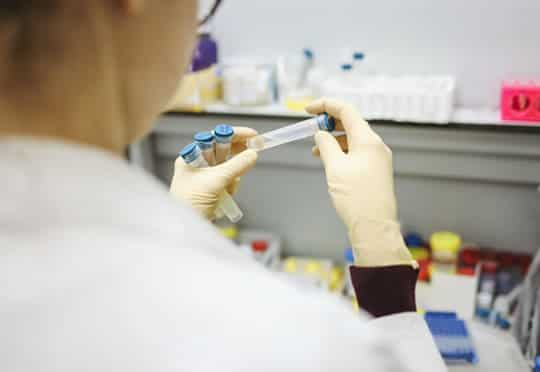An early clue of who is more likely to get seriously ill from COVID-19.
Blood tests of COVID patients when they arrive in emergency rooms can give doctors important clues if the patient will recover quickly or will be taken to intensive care.
Certain biomarkers related to the activation of white blood cells, if found in a patient’s blood sample, can predict worse outcomes from COVID, a study reveals.
Dr Hyung Chun, study co-author, said:
“Patients with high levels of these markers were much more like to require care in the intensive care unit, require ventilation, or die due to their COVID-19.”
Patients with COVID have elevated levels of some proteins in the blood such as D-dimer and cytokines.
These markers are part of the inflammatory response.
Until now, no biomarkers have been identified to predict which patients will get very sick from the coronavirus.
The study identified five proteins known as HGF, lipocalin-2, G-CSF, resistin, and IL-8 in the patients’ blood samples.
These proteins are linked to neutrophils that are the most abundant type of white blood cell that defends the body against infection and inflammation.
The team found that patients with coronavirus who later became severely ill, have high levels of these proteins in their blood.
Previously the link between these proteins and obesity has been established but not for viral illnesses including coronavirus disease.
Dr Alfred Lee, study co-author, said:
“This is one of the first demonstrations that a set of biomarkers in the blood of COVID patients can predict eventual ICU admission, even before such patients become critically ill.”
The authors emphasised that detecting these indicators at the early stage of infection will help patients and enhance treatment.
Dr Chun said:
“If a diagnostic test [for these biomarkers] could be ordered early, it could give us a better sense of who is more likely to become critically ill and will benefit from a higher level of care and consideration for therapies that affect the immune system early on in their hospitalization.
Many of these drugs do carry potential side effects, and these tests may help identify those patients who would benefit the most.”
The link between obesity and COVID has already been established as obese people are at higher risk for getting seriously ill, being hospitalised, and dying from the infection.
Dr Lee said:
“Neutrophils are inflammatory cells so it makes sense that they would be elevated in the context of both obesity — which involves chronic, low-grade inflammation — and COVID-19, which causes hyperinflammation in the most severe cases, leading to tissue damage and organ failure.
There are also signs that neutrophils might participate in thrombosis or blood clotting.”
The study was published in the journal Blood Advances (Meizlish et al., 2021).

